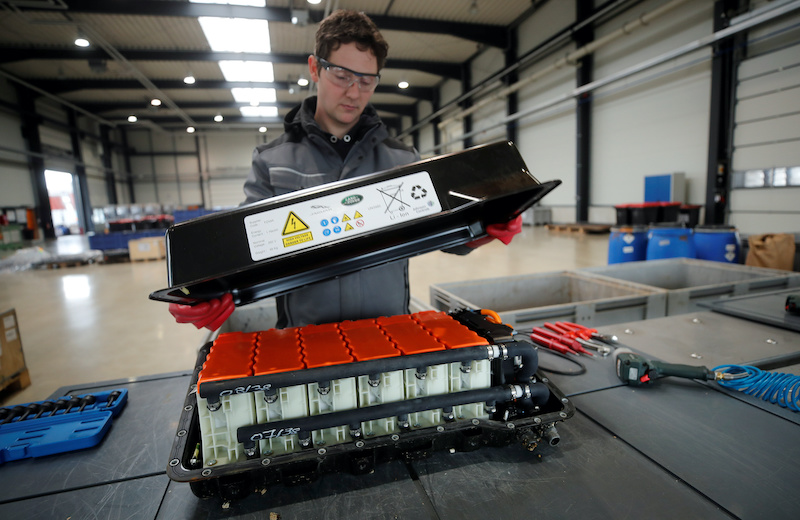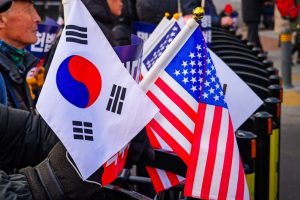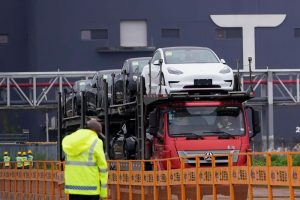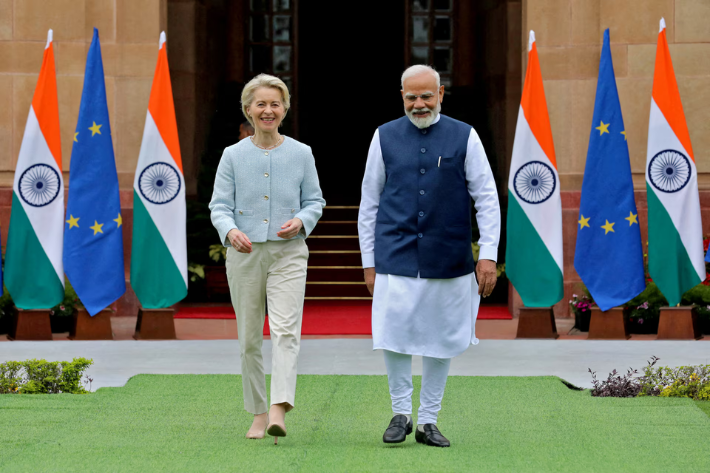The European Union is looking to diversify its supply of lithium-ion batteries and fuel cells over coming years to avoid becoming dependent on China for those key energy products.
The issue is due to be discussed by EU leaders at economic security talks in Spain in several weeks.
A paper prepared for EU leaders has warned that the bloc could become as dependent on China for lithium-ion batteries and fuel cells by 2030 as it was on Russia for energy before the war in Ukraine unless it takes strong measures.
The document will be a topic of discussion at the meeting in Granada on October 5.
ALSO SEE: China Slams EU’s Car Probe as a ‘Naked Protectionist Act’
Keen to diversify sources of energy storage systems
Worried by China’s growing global assertiveness and economic weight, the leaders will discuss the European Commission’s proposals to reduce the risk of Europe being too dependent on China and the need to diversify towards Africa and Latin America.
The paper said that because of the intermittent nature of renewable energy sources like solar or wind, Europe will need ways to store energy to reach its goal of net-zero carbon dioxide emissions by 2050.
“This will skyrocket our demand for lithium-ion batteries, fuel cells and electrolysers, which is expected to multiply between 10 and 30 times in the coming years,” the paper, prepared by the Spanish presidency of the EU, said.
While the EU has a strong position in the intermediate and assembly phases of making electrolysers, with a more than 50% global market share, it relies heavily on China for fuel cells and lithium-ion batteries crucial for electric vehicles.
‘Other areas of vulnerability’
“Without implementing strong measures, the European energy ecosystem could have a dependency on China by 2030 of a different nature, but with a similar severity, from the one it had on Russia before the invasion of Ukraine,” it said.
According to the European Commission, in 2021, the year before the Russian invasion of Ukraine, the EU took more than 40% of its total gas consumption, 27% of oil imports and 46% of coal imports from Russia.
Ending most energy purchases from Russia caused an energy price shock in the EU and a surge in consumer inflation, forcing the European Central Bank to sharply raise interest rates in a move that has curbed economic growth.
Lithium-ion batteries and fuel cells were not the only area of EU vulnerability, the Spanish presidency paper said.
“A similar scenario could unfold in the digital-tech space,” the document said. “Forecasts suggest that the demand for digital devices such as sensors, drones, data servers, storage equipment and data transmission networks will rise sharply in this decade.”
“The EU has a relatively strong position in the latter, but it shows significant weaknesses in the other areas,” it said.
By 2030, this foreign dependency could seriously hinder the productivity gains that the European industry and service sector urgently require and could impede the modernisation of agriculture systems essential to addressing climate change, it said.
- Reuters with additional editing by Jim Pollard
ALSO SEE:
Europe Assessing Tariffs on Chinese EVs Amid Subsidy Concerns
China’s Gotion Gets US Nod on $2 Billion Lithium Battery Plant
India, US, Saudi, EU Sign Ports Deal To Counter China Amid G20
Germany Seen Reviewing Ways to Cut China Dependency
























